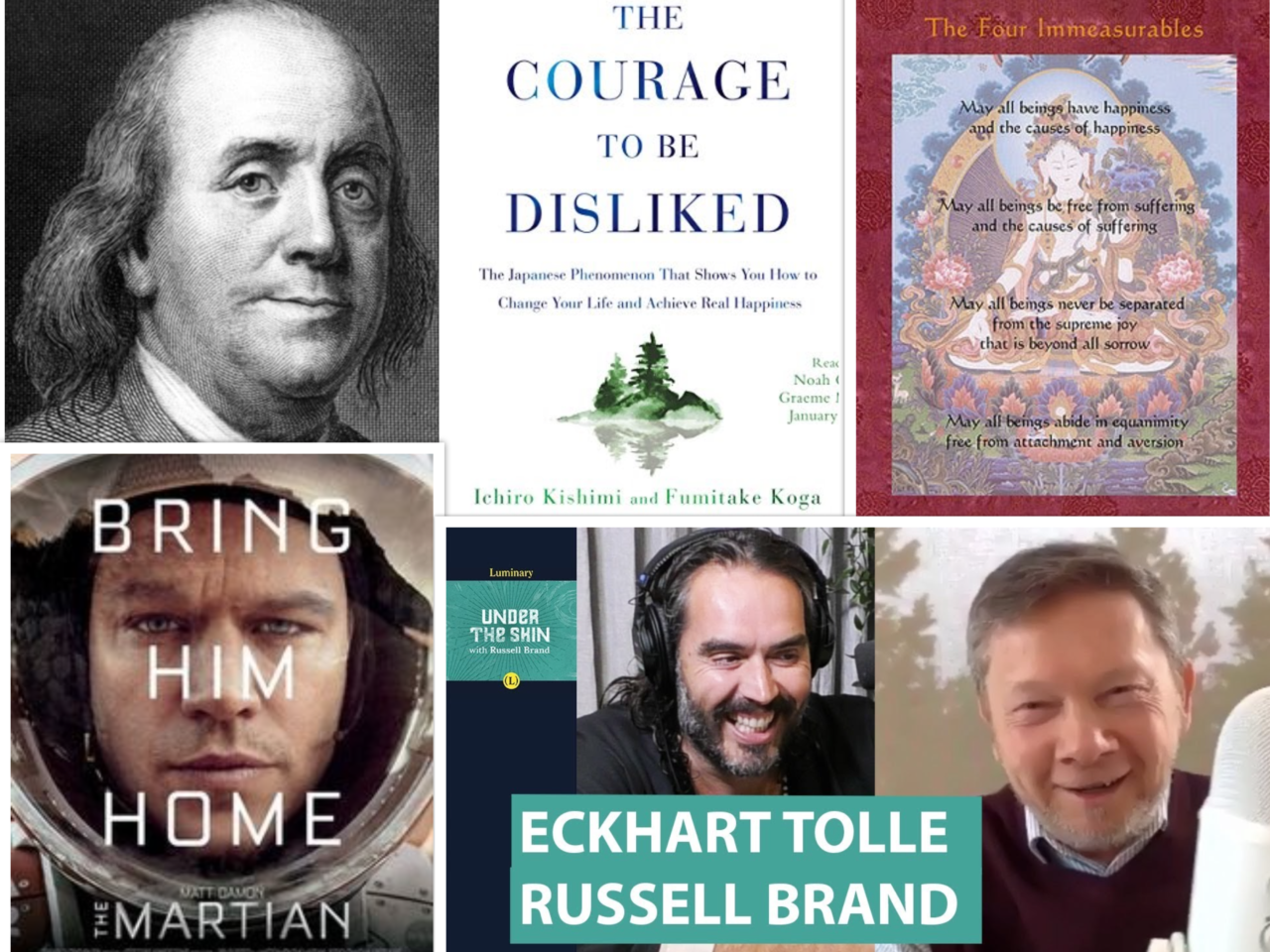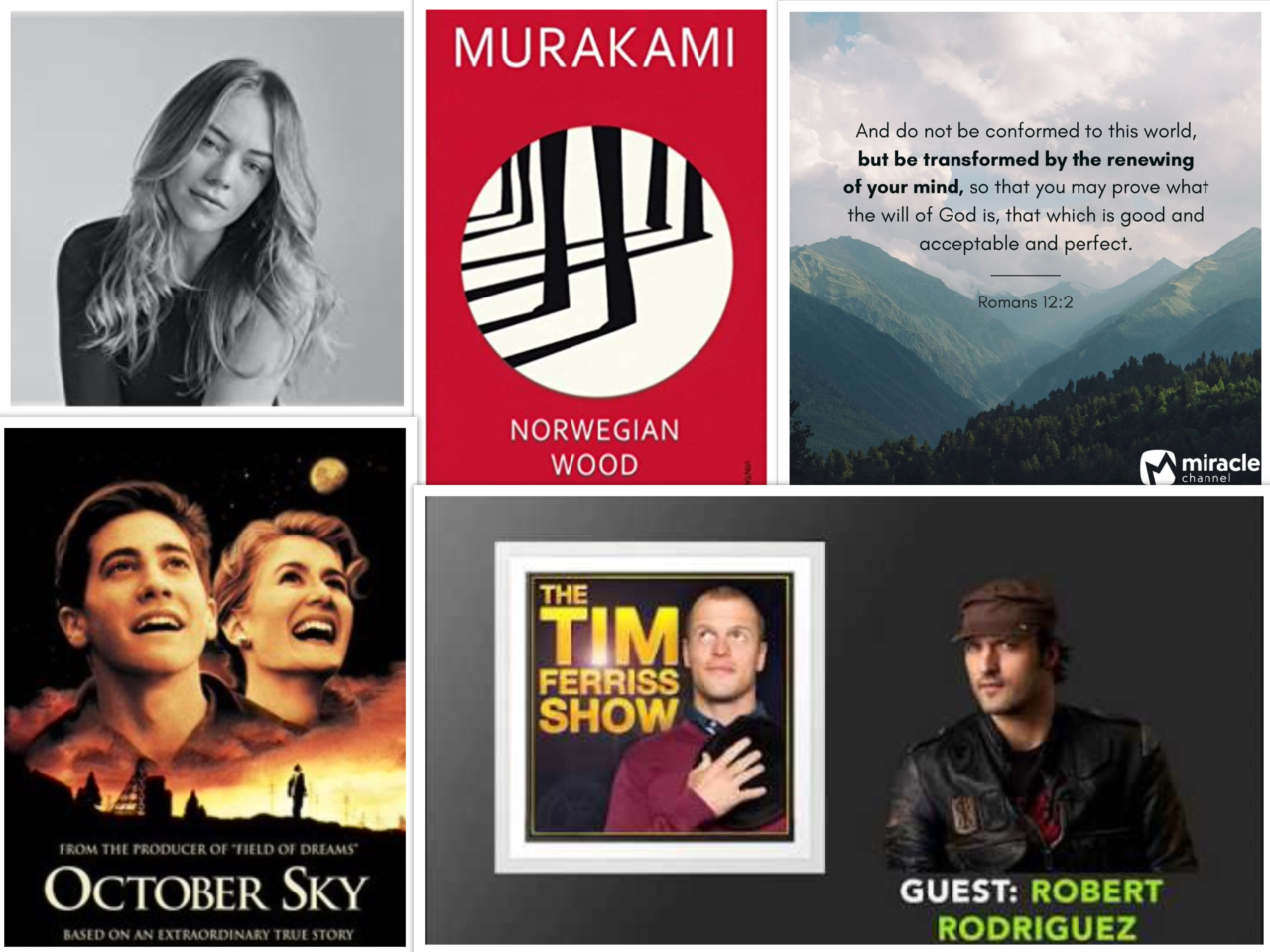Sunday Supplement #112 (July 2nd, 2023)
Below is another Sunday Supplement with a quote worth sharing, a book worth reading, a movie worth watching, brainfood worth consuming, and a spiritual passage worth pondering.
Please take something away from these recommendations that enriches your week ahead!
Quote of the Week:
“You may not control all the events that happen to you, but you can decide not to be reduced by them.”
– Maya Angelou
Book of the Week:
The Psychology of Money – Morgan Housel
Morgan Housel’s The Psychology of Money shares 19 short stories that exemplify different ways people think about money and provides valuable lessons in them.
One of the fundamental principles of the book is the idea that doing well isn’t necessarily about what you know but more about how you behave.
Many smart financial people lose a lot of money or go completely broke. It often has to do with the lack of control or awareness of their behavior.
Housel is an award-winning author, two-time winner of the Best in Business Award from the Society of American Business Editors and Writers, and a partner at The Collaborative Fund.
The Psychology of Money is worth a read as a good reminder of solid principles that will help you secure your financial future.
Movie of the Week:
Steven Spielberg’s Minority Report takes place in the future, where a special police unit is able to arrest murderers before they commit their crimes.
The film is based on Philip K. Dick’s novella and focuses on the situation an officer in that special unit faces when he is accused of a future murder.
Tom Cruise stars as the accused officer, John Anderton. Max von Sydow, Colin Farrell, and Samantha Morton also stand out in their performances.
Minority Report is an excellent exploration of free will versus determinism in a well-done science fiction/action film.
Those familiar with Dick’s works will know the story can get pretty heady, but it’s worth the watch if you’re interested in a thought-provoking and entertaining story.
Brainfood of the Week:
Miyamoto Musashi – How To Build Your Self Discipline | Philosophies for Life
Miyamoto Musashi is considered the greatest swordsman in the history of Japan. However, he wasn’t just a master of the sword; he was an artist, a philosopher, and a Buddhist.
Musashi wrote war and philosophy books, which became blueprints for people wishing to lead a disciplined life.
Philosophies for Life breaks down philosophical ideas that will help you improve multiple aspects of your life – spirituality, finance, relationships, mental, and emotional.
In the Philosophies for Life video, they discuss four principles from Musashi’s work about discipline. Check out the video and let me know if you liked the content.
I’ve featured Miyamoto Musashi in Sunday Supplement #20 and Philosophies for Life in Sunday Supplement #17 if you want to check out other similar videos.
Closing Spiritual Passage:
“Easy to do are things that are bad and harmful to oneself. But exceedingly difficult to do are things that are good and beneficial.”
– Dhammapada 163
This is a fairly straightforward verse from the Dhammapada, but it’s a great reminder of how the decisions we make each day can compound positively or negatively.
I’m blanking on where my brother picked up this phrase, but he shared the example of how each decision we make affects our present self and our future self.
So a decision I make now can be fun for present Drew, but future Drew will have to pay the consequences. A simple example is staying up too late and not getting enough sleep.
This Dhammapada verse reminds us that it’s easy for us to make decisions that will become our future selves’ problems.
Look out for moments when you can take control, make the best decisions you can in those moments, and have a blessed week ahead!
4 Comments


